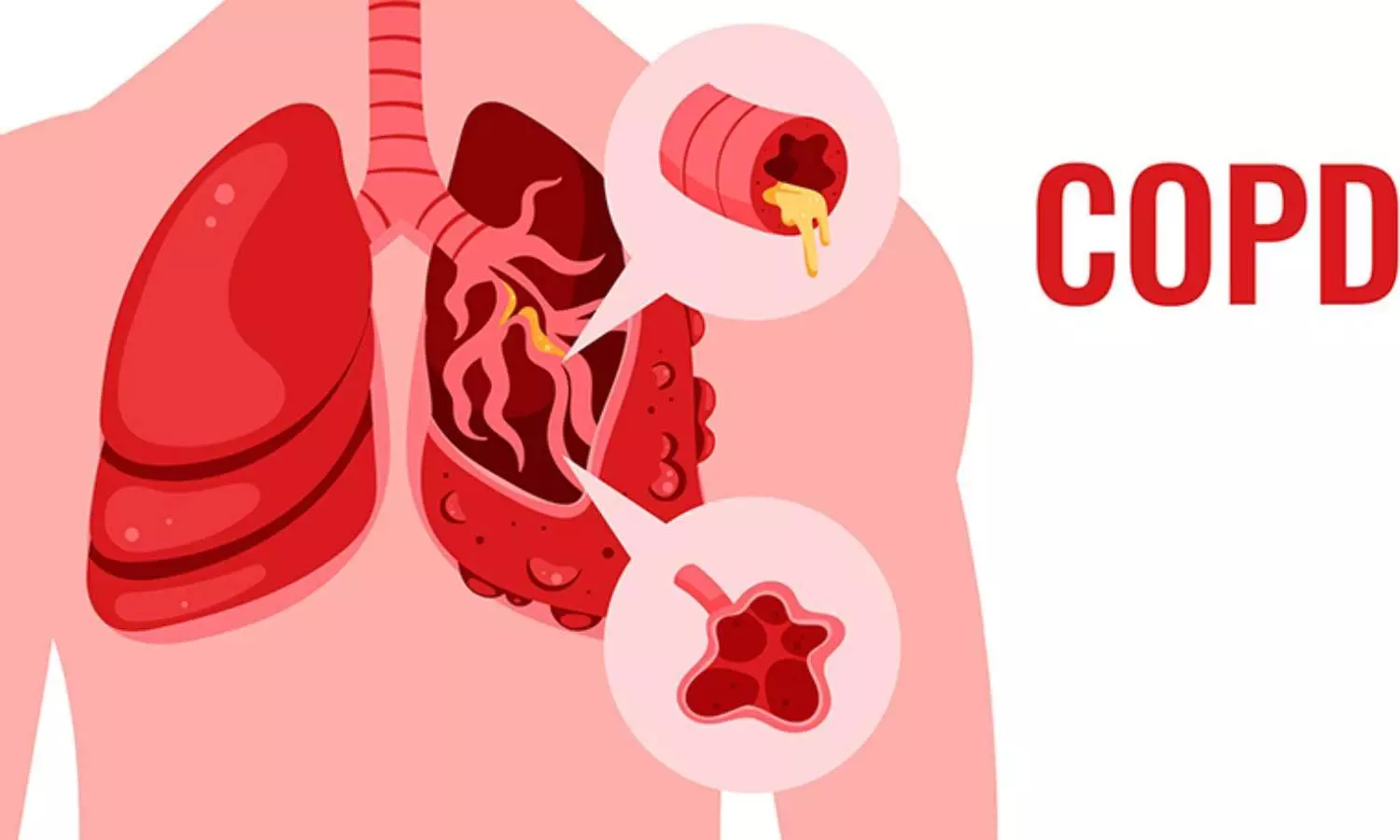CAT-Based Definition Better Predicts COPD Mortality Risk, reports research
- byDoctor News Daily Team
- 01 October, 2025
- 0 Comments
- 0 Mins

Researchers have indicated in a new study that a COPD Assessment Test-based definition of chronic bronchitis (CAT-CB) is more accurate in identifying patients at risk of long-term mortality than the traditional definition. The study determined that only patients with severe CAT-CB symptoms exhibited a higher risk of 10-year all-cause mortality, thus making CAT-CB a more convenient and clinically relevant method than the traditional definition. The study was published in the journal ofRespiratory Medicineby Joon Y. and colleagues. Chronic bronchitis (CB) is one of the prevalent phenotypes of chronic obstructive pulmonary disease (COPD) and has been linked to adverse health outcomes, such as increased morbidity and mortality. Conventionally, CB has been diagnosed based on the American Thoracic Society (ATS) criteria, which mandates the occurrence of cough and sputum for a minimum period of three months for two successive years. However, this definition is not perfect, as it lacks measurement of symptom severity and a direct connection with long-term mortality. In response to this deficit, the Korea COPD Subgroup Study (KOCOSS) study compared the performance of the traditional CB definition with a CAT-based definition (CAT-CB), with the latter employing patient-reported sputum and cough severity scores. Researchers used 3,476 participants who were recruited into the prospective, multicenter KOCOSS cohort. CB was classified in two manners: Classic ATS definition: cough and sputum ≥ 3 months annually for 2 consecutive years. CAT-CB definition: CAT item 1 (cough) > 2 and item 2 (sputum) > 2. CAT-CB patients were then divided into mild (any item ≤ 3) or severe (both items > 3) subgroups. Mortality data were derived from national death registers, with follow-up being censored at 10 years. Cox proportional hazards analysis models were used to determine all-cause mortality risk. At baseline, 354 patients (11.0%) had the classic CB definition and 774 patients (22.6%) had the CAT-CB definition. CAT-CB was independently predictive of increased all-cause mortality, while the classic CB definition was not predictive. In the CAT-CB group, excess risk of mortality was limited to the severe subgroup, but not for patients with mild CAT-CB who did not have significant excess risk. When analyzed separately, both CAT-cough > 2 and CAT-sputum > 2 were predictive of mortality risk, whereas the corresponding elements of the classical definition did not display predictive capability. This shows that CAT-based scoring has better prognostic significance than the standard time-based definition. This big data, prospective study showed that CAT-based, but not classic, definition of chronic bronchitis is a better predictor of 10-year all-cause mortality in COPD patients. CAT-CB is a straightforward, practical, and actionable tool which can enhance risk prediction in the management of COPD. Choi, J. Y., Yoon, H. K., Kim, Y., Jang, J. G., Lee, J. H., Park, Y. B., Choi, C. W., Lee, C.-H., Yoo, K. H., & Rhee, C. K. (2025). Comparison of chronic bronchitis definitions in COPD for predicting 10-year all-cause mortality. Respiratory Medicine, 108389, 108389.https://doi.org/10.1016/j.rmed.2025.108389
Disclaimer: This website is designed for healthcare professionals and serves solely for informational purposes.
The content provided should not be interpreted as medical advice, diagnosis, treatment recommendations, prescriptions, or endorsements of specific medical practices. It is not a replacement for professional medical consultation or the expertise of a licensed healthcare provider.
Given the ever-evolving nature of medical science, we strive to keep our information accurate and up to date. However, we do not guarantee the completeness or accuracy of the content.
If you come across any inconsistencies, please reach out to us at
admin@doctornewsdaily.com.
We do not support or endorse medical opinions, treatments, or recommendations that contradict the advice of qualified healthcare professionals.
By using this website, you agree to our
Terms of Use,
Privacy Policy, and
Advertisement Policy.
For further details, please review our
Full Disclaimer.
Recent News
Karnataka's plan to set up new GMCs under PPP mode...
- 20 October, 2025
UP to set up 15 temporary hospitals for Ayodhya De...
- 20 October, 2025
Rajasthan HC issues contempt notices to state for...
- 20 October, 2025
Maha constitutes panel to draft policy on mental h...
- 20 October, 2025
Daily Newsletter
Get all the top stories from Blogs to keep track.


0 Comments
Post a comment
No comments yet. Be the first to comment!